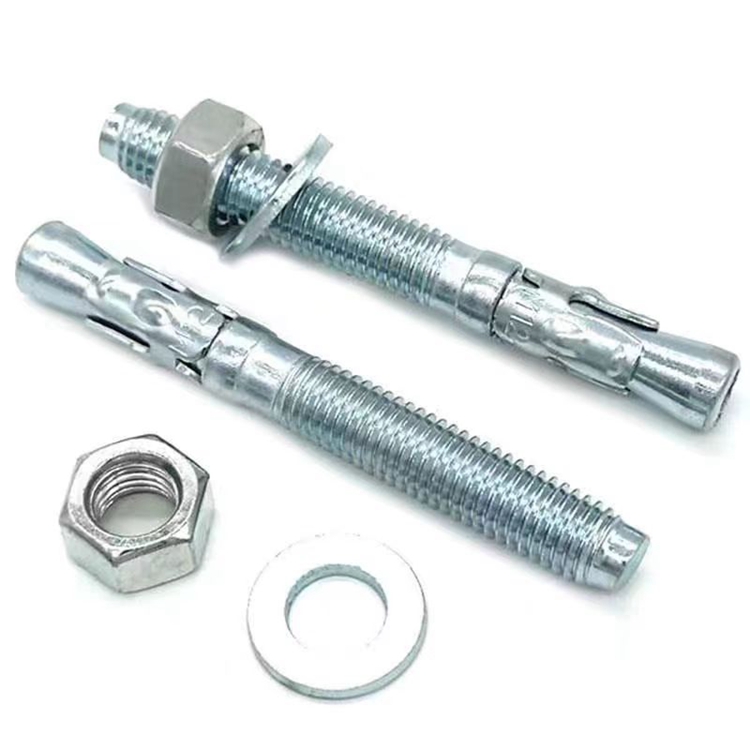ASTM Specifications for Hex Bolts Standards and Applications Explained
Oct . 16, 2024 22:03 Back to list
ASTM Specifications for Hex Bolts Standards and Applications Explained
Understanding ASTM Hex Bolts Standards, Applications, and Importance
Fasteners are crucial components in various engineering and construction projects. One of the most commonly used types of fasteners is the hex bolt, which conforms to the American Society for Testing and Materials (ASTM) standards. This article provides an overview of ASTM hex bolts, their applications, material specifications, and their significance in different industries.
What is an ASTM Hex Bolt?
An ASTM hex bolt is a type of fastener characterized by its hexagonal head and a threaded shaft. It is designed for use in conjunction with a nut to secure multiple components together. The term ASTM refers to the standards set forth by the American Society for Testing and Materials, an organization that develops and publishes voluntary consensus technical standards for a wide range of materials and products, including fasteners.
Hex bolts are available in various sizes, grades, and materials. The most common grades include ASTM A307 and ASTM A325 and A490, which are used in construction, general use, and structural applications, respectively.
ASTM Grades and Their Properties
1. ASTM A307 This specification covers carbon steel bolts, studs, and threaded rods. The bolts are available in two grades Grade A, which is intended for general use, and Grade B, which is used for high strength and is heat-treated. These bolts are typically used in a variety of applications, from building construction to machinery.
2. ASTM A325 This standard covers high-strength bolts for structural steel joints. Grade A325 bolts are made from medium carbon steel that is heat-treated. These bolts are commonly used in steel structures and bridges, where high strength is required to withstand heavy loads and stress.
3. ASTM A490 Similar to A325 but specifies higher strength requirements. These bolts are also used in structural applications but are designed for particularly demanding conditions, providing enhanced resilience against fatigue and stress.
Applications of ASTM Hex Bolts
ASTM hex bolts are utilized across numerous industries, showcasing their versatility and reliability
astm hex bolt

- Construction Hex bolts form the backbone of many construction projects, from residential buildings to commercial structures. Their strength ensures that critical components remain securely attached, contributing to overall structural integrity.
- Automotive In the automotive industry, these bolts are used in assembling various vehicle components, including engines, frames, and suspension systems. The durability of ASTM hex bolts ensures vehicle safety and longevity.
- Manufacturing Heavy machinery often incorporates hex bolts to secure different parts together. The ability to withstand vibrations and dynamic loads makes them ideal for this application.
- Marine In marine applications, ASTM hex bolts made from corrosion-resistant materials are critical for joining components in environments exposed to harsh conditions, such as saltwater.
Importance of ASTM Standards
The significance of ASTM standards for hex bolts cannot be overstated. Compliance with ASTM specifications ensures that fasteners meet specific performance and safety criteria. This standardization is vital for
- Quality Control Manufacturers who adhere to ASTM standards must conduct rigorous testing on their products, which assures quality and reliability for end-users.
- Interoperability In construction and manufacturing, various components are often sourced from different suppliers. ASTM standards facilitate compatibility among these components, ensuring they can be used together safely and effectively.
- Safety Assurance Adhering to established standards minimizes the risk of fastener failure, which can lead to catastrophic failures in structures and machinery. Proper use of ASTM hex bolts ensures enhanced safety for end-users.
Conclusion
In summary, ASTM hex bolts are essential fasteners that contribute significantly to the durability and integrity of various structures and machinery. Their compliance with stringent ASTM standards ensures quality, safety, and compatibility across diverse applications. Understanding the different grades and specifications of hex bolts allows engineers, contractors, and manufacturers to select the right type for their specific needs, ultimately leading to successful and safe project outcomes. As technology and industry requirements evolve, the importance of standardized fasteners like ASTM hex bolts will continue to be crucial in engineering and construction practices.
Latest news
-
High-Quality Panel Stud Bolt Reliable Panel Stud Bolt Factory & Suppliers
NewsJul.08,2025
-
High-Precision Fine Thread Locknuts Manufacturer & Supplier Custom Solutions
NewsJul.08,2025
-
PH Imperial Stud Bolt – High Strength Fasteners from Leading Supplier & Factory
NewsJul.07,2025
-
High-Quality Allen Wrench Bolts Leading Factory, Company & Suppliers
NewsJul.07,2025
-
Wholesale Ball Stud Bolt - High Quality Supplier & Factory Price Reliable Wholesale Ball Stud Bolt Company
NewsJul.06,2025
-
High-Strength Alloy Bolts Manufacturer & Supplier Quality Alloy Fasteners Factory
NewsJul.06,2025
